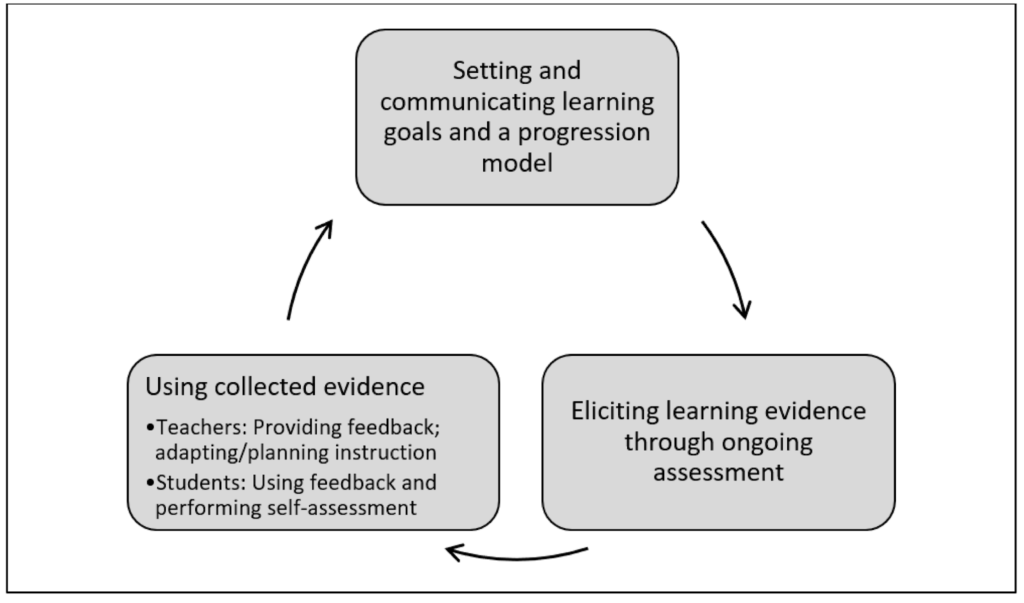In today’s rapidly evolving educational landscape, it is essential to adopt effective frameworks that promote enhanced learning outcomes. One such framework that has gained significant attention is the Learning Progressions Framework. This approach provides a structured pathway for students to acquire and build upon their knowledge and skills over time. By understanding the importance of a learning progressions framework and its potential impact on education, educators can create tailored instructional strategies that meet the diverse needs of students. In this article, we will explore the key aspects of a learning progressions framework and its role in enhancing education.
Table of Contents
Understanding the Learning Progressions Framework

The learning progressions framework is a systematic approach to education that outlines the sequenced steps students should take to master specific concepts and skills. It offers a clear roadmap, ensuring students’ continuous growth and development. By breaking down complex subjects into manageable components, the framework enables educators to identify the knowledge gaps and scaffold instruction accordingly. Moreover, it supports students’ metacognitive development, allowing them to reflect on their learning journey and set realistic goals. The learning progressions framework serves as a valuable tool for educators, helping them align their instructional practices with students’ learning needs and ensuring consistent progress.
Key Components of a Learning Progressions Framework
A learning progressions framework comprises several essential components that collectively contribute to effective teaching and learning. Firstly, it involves clearly defined learning goals, which outline the expected outcomes for students at different stages of their education. These goals provide a sense of direction, enabling teachers to design relevant and meaningful learning experiences. Secondly, the framework includes a progression map that outlines the sequential order in which concepts and skills should be taught. This ensures a logical and coherent flow of instruction, allowing students to build upon prior knowledge. Additionally, the framework emphasizes formative assessment, enabling teachers to gather ongoing feedback and monitor students’ progress. This data-driven approach enables timely intervention and personalized instruction.
Benefits of Implementing a Learning Progressions Framework

The implementation of a learning progressions framework offers numerous benefits for both educators and students. Firstly, it promotes a student-centered approach to education, where individual learning needs are taken into account. By tailoring instruction to students’ current levels of understanding, educators can provide differentiated support, ensuring every student has the opportunity to succeed. Secondly, the framework fosters a growth mindset among students, emphasizing that intelligence and abilities can be developed through effort and practice. This mindset shift encourages students to embrace challenges and persist in their learning journey. Furthermore, the learning progress framework enhances the assessment process by providing clear criteria for evaluating student progress. This leads to more accurate and meaningful feedback, supporting students’ growth and improvement.
Integrating Technology into the Learning Progressions Framework

In today’s digital era, technology plays a crucial role in education. Integrating technology into the learning progressions framework can further enhance the educational experience. Educational software, online resources, and interactive tools can support students’ engagement and facilitate independent learning. For instance, interactive simulations and virtual experiments can provide hands-on experiences, allowing students to explore scientific concepts in a safe and controlled environment. Additionally, digital platforms offer opportunities for collaborative learning, enabling students to connect and collaborate with peers beyond the confines of their classrooms. By harnessing the power of technology within the learning progressions framework, educators can create dynamic and immersive learning experiences that captivate students’ interest and promote deep understanding.
Overcoming Challenges in Implementing a Learning Progressions Framework
While the learning progressions framework offers immense potential for enhancing education, its successful implementation can encounter certain challenges. One of the key challenges is the need for adequate professional development for educators. Teachers require training and support to effectively implement the framework in their classrooms and ensure its alignment with their instructional practices. Additionally, integrating the framework into existing curricula and assessment systems may require careful planning and coordination. It is crucial to provide sufficient time and resources for teachers to modify their instructional strategies and create appropriate learning materials. Furthermore, addressing the diverse learning needs of students within the framework may require additional support and differentiated instruction. Overcoming these challenges requires a collaborative effort involving administrators, policymakers, and educators.
Conclusion
The learning progressions framework offers a powerful approach to education, providing a structured and sequenced pathway for students’ learning and growth. By implementing this framework, educators can effectively address the diverse needs of their students, promote continuous progress, and foster a culture of lifelong learning. The key components of the framework, such as clearly defined learning goals and formative assessment practices, support educators in designing personalized instruction and providing meaningful feedback. Integrating technology further enriches the learning experience, enhancing student engagement and collaboration.
Despite the challenges, with adequate professional development and supportive policies, the learning progressions-framework has the potential to revolutionize education and empower students to become critical thinkers, problem solvers, and lifelong learners. As we embrace the opportunities offered by this framework, we pave the way for a brighter and more inclusive future of education.
Learn about: Unlock the Key to Success: Measure, Enhance, and Celebrate the Learning Progress of Students with Our Holistic Approach